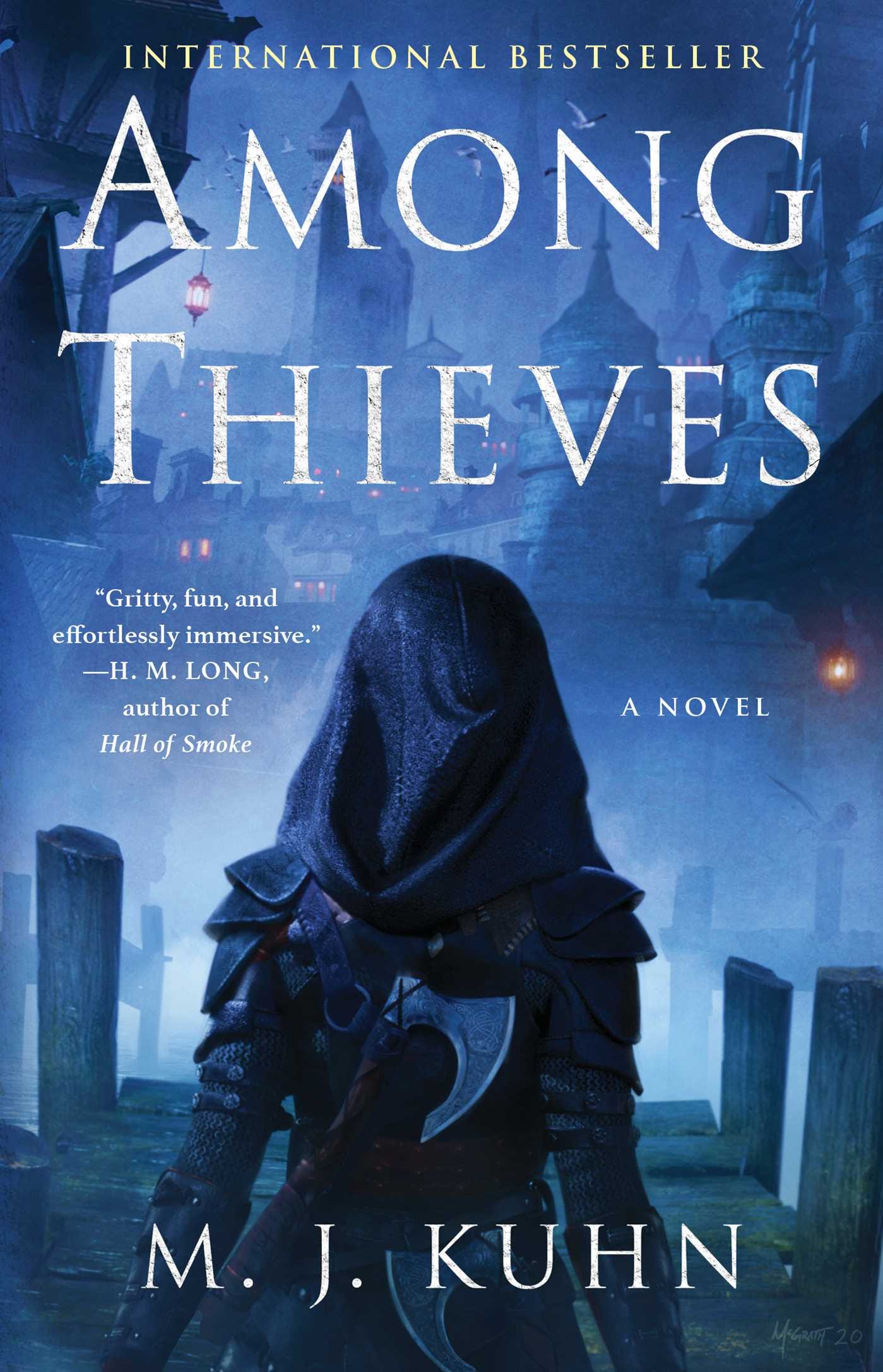We are now more than two years into a pandemic that has changed the way we interact with the world and continues to mold society, forcing us to either adapt (or more often, react) to its mutations. Climate change is already yielding apocalyptic storms and fires and has made unpredictable and once-rare weather events a regular feature of life. In the U.S., the political environment is so polarized as to border on dystopian in the minds of even the most optimistic (though many segments of the population would argue they have been living the dystopia for longer than this country has been a political entity).

So what place does speculative fiction have, in a world already so bizarre and unusual?
Before I answer that question, it’s worth noting that—whether we understand why or not—speculative fiction has become, well, pretty mainstream. Game of Thrones was a critical and ratings triumph. The adaptation of Robert Jordan’s fifteen-book Wheel of Time series was a huge Amazon feature this year. Battlestar Galactica is getting yet another reboot. The newest iteration of Dune got the full blockbuster treatment. The seemingly infinite film and television properties in the Marvel Universe just keep coming, to the tune of outrageous profit. Star Wars started as a low-budget risk and turned into one of the largest franchises of all time with a brand new trilogy and a hugely popular TV series just in the last half decade.
And that’s not even mentioning some of the literary smashes (especially in YA and middle grade, like Harry Potter and The Hunger Games, which both got their own film adaptations). Look at the biggest box office numbers of the last twenty years and you’ll notice a trend: most of those movies are speculative. Notably, the examples I mentioned above are all film and television properties, but most of them didn’t start that way. Most of them are book adaptations.
So why the boost in public interest in what was once considered a niche genre?
In my high school English classes, I remember learning about metaphor and analogy. I learned that the power of words was not always in their ability to represent something as it was, but to make indirect connections, to capture the deeper truth. This is the power that speculative fiction wields to greatest effect.

Speculative fiction may have developed a modern reputation as being specialized or other—much-maligned genre fiction as opposed to the more prestigious literature which qualifies for the term “literary”—but some of our earliest stories were speculative fiction of a sort. To explain things that were unexplainable, humanity invented larger-than-life characters, entire mythologies that made sense of things that were beyond the scope of comprehension any other way. In addition to being a writer, I’m a scientist with a background in philosophy, and so I find these boundaries between speculation and science really fascinating (and far more permeable than most people think). One of the most powerful things about myth is that it does more than just answer questions like where does the rain come from? or what made these strange footprints in this rock? It also answers questions like why are we invested in certain outcomes? and what should our legacy be?
And this is the power of speculative stories of all shapes, sizes, and sub-genres. They serve as a metaphor: they distance us from the everyday world in order to answer the most intimate, frightening, and life-changing questions. Ursula K. LeGuin described it like this: “Dragons are one of the truths about us. […] People who deny the existence of dragons are often eaten by dragons. From within.”

So what are these dragons that speculative stories are training us to fight? They aren’t literal dragons, but metaphorical ones. They’re stand-ins for the very real, crucial fights we face in a world filled with pain and trauma and deterioration.
This is how a tiny, magical ring can bring an entire world to its knees. Because its true power is in how it makes people behave; how it reflects the darkest urges of humanity and reminds us that the ability to resist evil is in our choices. This is how a mage chased by his shadow-self can enthrall us. Because we come to understand, as he does, that when we try to sever ourselves from the things we fear, we only become their prey.
One sub-genre of speculative fiction walks this metaphorical line explicitly: The gothic. One of the defining characteristics of a gothic story is the presence of some monstrous figure which provides much of the suspense and serves as a scapegoat for most of the story. Inevitably in the gothic, we learn that the monster was us all along, in some form or another. The monster is an embodiment of a personal or societal moral failing.
It’s worth noting that the examples I gave above are just very small samples of the powerful, rich, and intricate weaving of symbolism and metaphor using speculative elements in each of these stories.
This is why I write speculative fiction, and this is why I read speculative fiction. This is why I love speculative fiction. It provides an incredibly rich and nuanced set of tools for examining weighty questions. We made these monsters. So how will we reckon with them?
ANNOUNCEMENTS:
New Releases!
The Hand-Me-Down Maiden, Katherine Forrister
”It’s 1921, and for Guy Barrett, “home” is a suitcase as he jumps from city to city to oversee hotel openings. Still, his hectic life of travel beats the orphanage where he spent his childhood. But when he learns that his long-lost parents died and bequeathed him their mansion and estate, Guy rushes to the small town of Wakeforest. What he finds is a tacky mansion—a patchwork of architecture from three different centuries—and a young, beautiful caretaker who claims to have lived there for 261 years.”
Among Thieves, MJ Kuhn (paperback edition)
“In just over a year’s time, Ryia Cautella has already earned herself a reputation as the quickest, deadliest blade in the dockside city of Carrowwick—not to mention the sharpest tongue. But Ryia Cautella is not her real name. For the past six years, a deadly secret has kept her in hiding, running from town to town, doing whatever it takes to stay one step ahead of the formidable Guildmaster—the sovereign ruler of the five kingdoms of Thamorr. No matter how far or fast she travels, his servants never fail to track her down...but even the most powerful men can be defeated. Ryia’s path now leads directly into the heart of the Guildmaster’s stronghold, and against every instinct she has, it’s not a path she can walk alone. Forced to team up with a crew of assorted miscreants, smugglers, and thieves, Ryia must plan her next moves very carefully. If she succeeds, her freedom is won once and for all…but unfortunately for Ryia, her new allies are nearly as selfish as she is, and they all have plans of their own.”
Book Giveaway Winners Selected
We’ve selected ten winners at random for our book giveaway! If you are a winner, you will have received an email to the same address you’ve received this newsletter!
Check to see if you’ve received the email and fill out the Google Form with your mailing information to receive your prize. If we are missing any addresses by June 1st we will draw new winners for those prizes!





